Zachor Shoah Teaches Local Educators about Holocaust
The new program invited teachers and administrators from across Metro Atlanta.
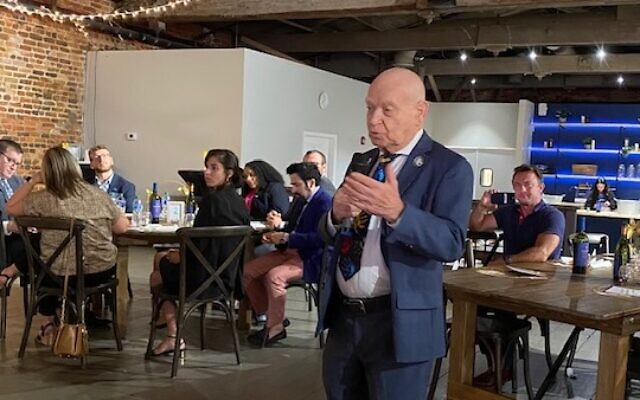
Zachor Shoah launched its first Holocaust Education Symposium in Georgia, held at the new Boxwood Social Hall in Marietta on June 24-27, before the start of the new school year.
Attended by teachers and administrators throughout the metro Atlanta area, speakers included a notable group of Holocaust scholars and historians drawn from cities around the United States. The symposium lasted three days and was jam-packed with seminars, documentaries, and discussions about topics ranging from the historical events leading up to the Holocaust to corporate America’s complicity in supporting the German economy during World War II.
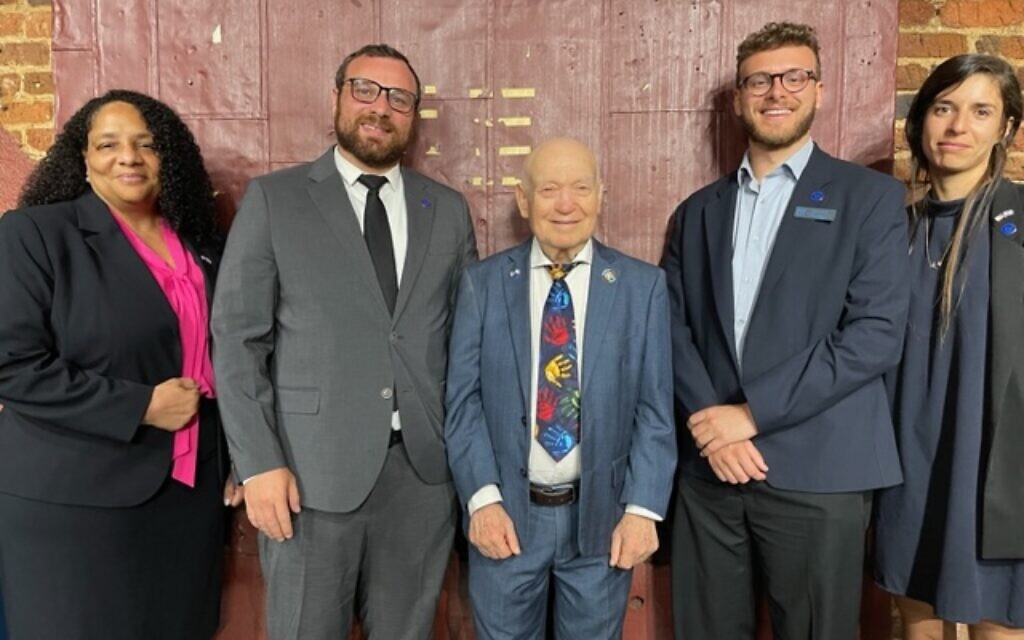
Sami Steigmann, a sought-after motivational speaker, Holocaust survivor and IDF veteran, was the keynote speaker on opening night. He was joined onstage by Alex Gandler, deputy consul general of the Consulate General of Israel to the Southeastern United States and Rev. Kristin Lee, the minister at East Cobb United Methodist Church, whose church hosted the “Time of Prayer and Action” that helped galvanize Cobb County community support in response to the Goyim Defense League’s appearance in front of Chabad of Cobb.
Deputy Consul General Gandler introduced Steigmann and offered thanks to Zachor Shoah’s founder and executive director, Carolina Simon, for making it her mission to improve and expand Holocaust education in Georgia. “The recent Neo-Nazi provocations which occurred in front of synagogues in this state clearly show the need to widely disseminate and apply the lessons of the Holocaust,” said Gandler.
Taking the stage that evening, Steigmann spoke about the importance of words and symbolism. “Jews were compared to rats by the Nazis. Why? Because they wanted to create a picture of Jews as small, all over the world and creatures who spread disease,” he said. Another word Steigmann pointed out and does not use is “antisemitic.” He emphasized, “Since Arabs are also Semites, there are many who deny they are antisemitic because they are Semites themselves. So, let’s just call it what it is – Jew hatred.”
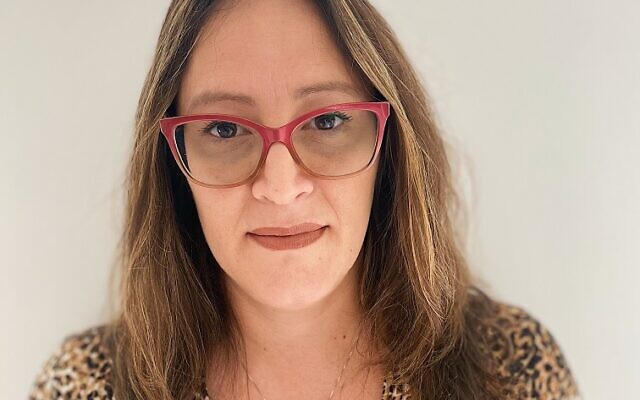
Simon created Zachor Shoah to share knowledge about the Holocaust and the 2,000 years of antisemitism leading up to it with teachers, students, and education administrators. The roles of imperialism, colonialism, nationalism, and economics are discussed at length in each of the grade-appropriate materials her organization supplies to private and public schools, designed for grades 6-12.
“Our goal is to create a community of teachers well versed in the complex history of the Holocaust and human rights, and provide the training, resources, and professional development needed to support their efforts,” said Simon. “We believe in the importance of actively and intentionally remembering the Holocaust, the state-sponsored, industrialized and systematic murder of six million Jews, as well as the other ugly parts of human history,” she added.
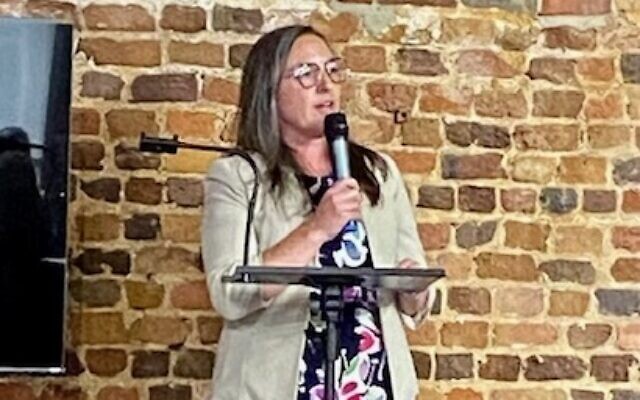
Pamela McCabe, a recently appointed K-12 social studies supervisor for Cobb County, hoped to make connections at the symposium in order to access resources she can share with U.S. and world history teachers in her district. While there is not a specific Holocaust studies class in the Cobb County high school curriculum, she mentioned that the subject is taught as part of a fast-paced, 18-week course. For Cobb middle schoolers, Holocaust education is integrated into sixth grade U.S. and world history curriculums.
Fulton County was also represented at the symposium. According to Crystal Flowers, Fulton County school system humanities director, ‘We want to ensure that our teachers have age-appropriate resources that they need to dispel myths about countries, groups of people and what happened during the Holocaust.” John Crumb, a Fulton County teacher from Northwestern Middle School in Milton, who was also at the symposium, added that he wanted to straighten out any misconceptions about the Holocaust among his students.
Prior to founding Zachor Shoah, Simon was a teacher, Holocaust educator, curriculum writer and administrator for schools in Florida. She decided to start the organization soon after moving to Georgia during the pandemic.
“My goal is for people to learn about the Holocaust – all the complex and nuanced decisions that were made, opportunities that were missed to do the right thing, and how easy it is to become someone who is harmful to the world,” said Simon. She does not believe most ordinary citizens set out to do evil. “Yet, these citizens destroyed an entire civilization and wiped out future generations that could have followed as a result of their actions,” she said.
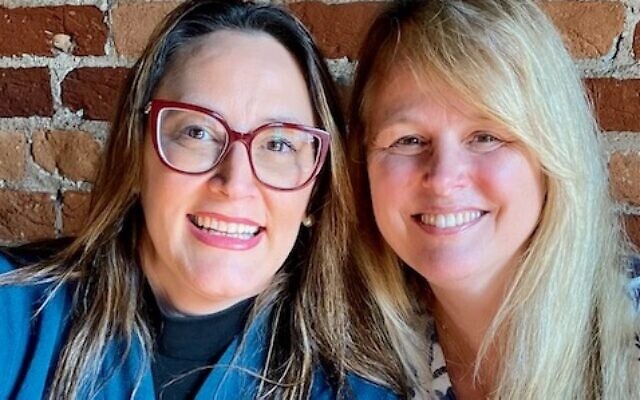
“My great-grandmother was a Catalonian Jewish gun runner during the Spanish Civil War, so I suppose it’s in my DNA to fight fascism,” said Simon. At 17, she took part in a Holocaust education program in south Florida that set her on a path of learning and teaching that continues until this day.
“After college graduation, I taught at Title I schools with large immigrant populations. Frankly, I was as surprised then as I am today when I learn that many students know nothing about the Holocaust.” Her determination compelled her to teach them what they did not know, and in the process, develop lesson plans, curricula, and other materials. Ultimately, Simon obtained a master’s degree in humanities, with a concentration in ethnic and Holocaust literature at the University of Texas-Dallas. She has been recognized by a number of organizations for her work in Holocaust education, including the Gutterman Family Excellence in Holocaust Education Award, an Alfred Lerner Fellowship from the Jewish Foundation for the Righteous, and the Human Spirit Award from the University of Miami and the Florida Center for the Survivors of Torture.
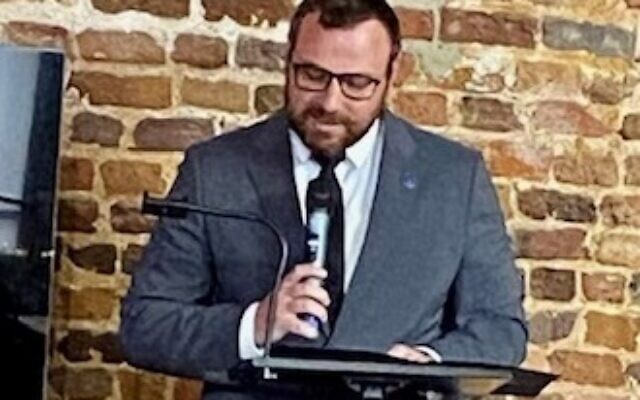
As the symposium wrapped up, Simon shared a story of an encounter she had with a child here in Georgia. Like many of his classmates and their parents, this teen had not met a Jewish person until Simon. He told her the Holocaust had been taught to his eighth-grade class during the mandated Georgia history course. As the conversation continued, he mentioned that he felt so badly about what had happened to the Jews in Helen, Ga., pointing out that the Holocaust was probably why Jewish people were no longer living there. First taken aback, Simon realized that with its German architecture and themed restaurants, this young man mistook Helen as the site of the Holocaust – likely because it was taught during his Georgia history course.
Simon knows that her work is never-ending. Through the continuing efforts of Zachor Shoah and individuals like Steigmann, Deputy Consul General Gandler, Rev. Lee and others, information about the tragedy of the Holocaust will continue to be shared as a way to educate young people, prevent future genocide, and inspire goodness.
- News
- Local
- Debbie Diamond
- Zachor Shoah
- Holocaust Education Symposium
- Boxwood Social Hall
- Sami Steigmann
- IDF
- Alex Gandler
- deputy consul general of the Consulate General of Israel
- to the Southeastern United States
- Rev. Kristin Lee
- East Cobb United Methodist Church
- Goyim Defense League
- Carolina Simon
- Pamela McCabe
- Crystal Flowers
- Northwestern Middle School
- University of Texas-Dallas
- Gutterman Family Excellence in Holocaust Education Award
- Alfred Lerner Fellowship from the Jewish Foundation for the Righteous
- Human Spirit Award from the University of Miami and the Florida Center for the Survivors of Torture



comments